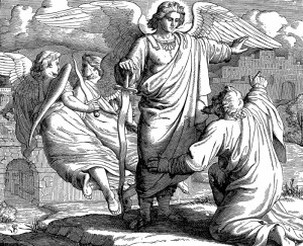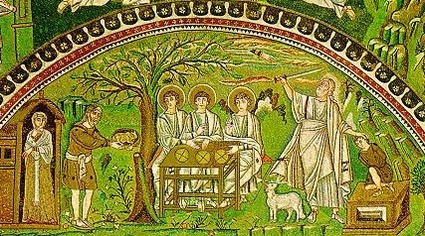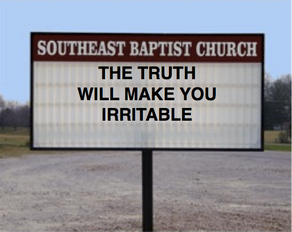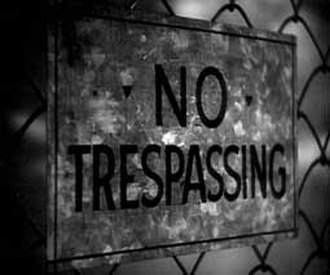
Oh, God said to Abraham, “Kill me a son.”
Abe says, “Man, you must be puttin’ me on.”
God say, “No.” Abe say, “What?”
God say, “You can do what you want, Abe, but
The next time you see me comin’ you better run.”
Well, Abe says, “Where do you want this killin’ done?”
God says, “Out on Highway 61”
Bob Dylan’s song, “Highway 61 Revisited,” is hardly the first time that someone has taken the biblical story of the Akeida, the Binding of Isaac, and applied it to contemporary circumstances. Jewish tradition has been doing that for more than 2,000 years. For centuries, we have been trying to make sense of the story in which God, to our horror, tells Abraham to sacrifice his son Isaac, and, to our horror, Abraham obeys. Isaac is saved only at the last minute when an angel stops Abraham with the command, “Do not raise your hand against the boy!” (Genesis 22:12).
This week, as we again read the Akeida in the weekly Torah portion (Vayera), I want to look at it again and listen again to Bob Dylan.
Dylan’s interpretation of the story is interesting to me – and, perhaps, to you – for a few reasons. First, of course, is because Dylan – born, Robert Allen Zimmerman – is Jewish and grew up hearing Jewish interpretations of the story. Second, is because Dylan is recognized as a significant literary figure of the 20th and 21st century. You may or may not agree with the committee in Sweden that recognized him in 2016, but Bob Dylan will forever be known as a Nobel Laureate for “for having created new poetic expressions within the great American song tradition.” Third, and most important to me, is the fact that Bob Dylan helped shape my life. Through his music, Bob Dylan served as a spokesperson for the attitudes and ideas of people like me who grew up in the 1960s and ‘70s.
So, what does Dylan have to say about the Akeida that speaks to our circumstances? The song begins by removing the story from its usual reverential treatment. He turns it into the story of ordinary people, desperate people, and even unsavory people. Abraham becomes “Abe.” God is transformed into a bullying authority figure: “You can do what you want, but the next time you see me comin’, you better run.”
Yet, notice that this line is ambiguous. On one level, it is a threat of violence, like what you might expect from a corrupt sheriff in a small town who uses rough language and intimidation to work his will on others. However, there is another way to hear the line, too, one that plays upon classical theological ideas. God says, “You can do what you want,” meaning, you have free will. You are permitted to choose whether you will act according to God’s will or not. Yet, as in classical theology, God also says that wrong action carries consequences.
“The next time you see Me coming, you better run,” is a reminder that we are seen by God and we are expected to see God in our lives. If you don’t, your actions – and God – will eventually catch up with you. There might even be a suggestion here of the classical Jewish statement from Pirke Avot that a person should “run to do even a minor commandment and flee from a transgression” (Pirkei Avot 4:2). God tells us, and sometimes in harsh words, “You better run.”
At the end of this first stanza, we hear the repeating theme of the song. Where does God want Abe to kill his son? Out on Highway 61.
Highway 61 has significance in the history of American music and it has tremendous meaning in the life of Bob Dylan. U.S. Route 61 is the "Blues Highway" that connects New Orleans, Louisiana; to Vicksburg, Mississippi; to Memphis, Tennessee; to St. Louis, Missouri; and then all the way up to Dylan’s home state of Minnesota.
To the young Bob Dylan, Highway 61 was the road to the music of Muddy Waters, Charley Patton, and Bessie Smith. It was the road, according to legend, where bluesman Robert Johnson sold his soul to the devil to master the guitar. And Highway 61 was the stretch of asphalt that led Dylan away from his home to the several birthplaces of American blues, jazz, country, and folk music. It was the escape route from comfort, safety, and suburbia in the upper midwest, away from the squeaky-clean dullness and conformity of white America, and into the unbounded world of creative expression, rebellion, confrontation, struggle, racial diversity, and danger.
Well, Georgia Sam he had a bloody nose.
Welfare Department they wouldn’t give him no clothes.
He asked poor Howard, “Where can I go?”
Howard said, “There’s only one place I know.”
Sam said, “Tell me quick, man, I got to run.”
Ol’ Howard just pointed with his gun
And said, “That way down on Highway 61.”
Well, Mack the Finger said to Louie the King,
“I got forty red, white and blue shoestrings
And a thousand telephones that don’t ring.
Do you know where I can get rid of these things?”
And Louie the King said, “Let me think for a minute, son.”
And he said, “Yes, I think it can be easily done.
Just take everything down to Highway 61.”
Now, the fifth daughter on the twelfth night
Told the first father that things weren’t right.
“My complexion,” she said, “is much too white.”
He said, “Come here and step into the light.” He says, “Hmm, you’re right,
Let me tell the second mother this has been done.”
But the second mother was with the seventh son
And they were both out on Highway 61.
The stanzas that follow the first tell a story of increasing danger and conflict. It is the real America of the mid-1960s beyond the wallpaper veneer of domestic tranquility. It is the America of subjugation and racial animosity. It is the America of violence and intimidation directed against the poor and the marginalized. It is the America of capitalism run amok, looking to make a quick buck by selling useless goods. It is the America of moral decay and flight from a society that had grown stale and soulless.
Dylan here is playing the role of the Hebrew prophet – the man who is willing to tell his people the truth that no one else dares to speak. He is like Jeremiah who risks the wrath of his own tribe by telling them, “This is what the Lord says, ‘Stand by the roads and consider. Ask about the ancient paths. Which is the road to happiness? Travel it and find your tranquility.’ But you say: ‘We will not go.’” (Jeremiah 6:16).
Dylan’s use of the Akeida to frame this story of flight from dullness to danger is a familiar reading of the biblical narrative. Jewish commentators of the Torah have seen the story of the Binding of Isaac as a kind of a warning against blind faith. Franz Rosenzweig saw the story as God’s challenge to Abraham – and to humanity – to become more than timid and fearful automatons. Real piety, according to Rosenzweig, is not to be found in mere obedience. Rather, it is the difficult path of freedom – free thinking, willing to question, able to defy even God. In Rosenzweig’s words, “God obviously wants only those who are free for his own" (The Star of Redemption, p. 284).
Bob Dylan’s vision of God in “Highway 61 Revisited” is a God who challenges and goads us out of our comfort and into confrontation. God threatens us and chases us out of our sleepy acceptance of the world as it is, and forces onto a journey that will allow us to see darker truths – a journey along Highway 61.
It is in the last stanza that Dylan reveals the greatest danger that lurks beyond the curtain of the familiar and comfortable:
Now, the Rovin’ Gambler, he was very bored.
He was tryin’ to create a Next World War.
He found a promoter who nearly fell off the floor.
He said, “I never engaged in this kind of thing before,
But, yes, I think it can be very easily done.
We’ll just put some bleachers out in the sun
And have it on Highway 61.”
There are those, Dylan suggests, who will use our blindness to destroy us. If we don’t see the truth of the poverty that squelches the human spirit, the racism that turns people into social pariahs, the way that authority uses violence and intimidation to control society, and the way that rampant capitalism makes us suckers to buy things we don’t need – if we don’t see any of that – then we also won’t see the way that power will corrupt the entire fabric of society. Dylan raises the specter of a “Next World War” as a warning about nuclear war that was a real fear in the mid-1960s. Today, we can see the threat also in the corrosion of democracy. We are mindful today of hyper-partisanship that threatens to keep us permanently divided, permanently suspicious of each other, permanently angry, and permanently willing to ignore the real beneficiaries of our division. The final irony is that when our society’s dearest values are taken from us, we won’t even see it coming. We’ll just think that the “Rovin’ Gambler” is putting on another show for our amusement with the bleachers set out on Highway 61.
This song, that was written more than fifty years ago, that retells a story that was written more than 2,500 years ago, still tells a tale for our times. The Binding of Isaac is God’s whispered message to us across the centuries and across the millennia that we must always be watching to see God coming after us. We must always be awake and aware just at the moment when we fall into the trap of merely obeying and conforming without thinking. When we do see and notice what is really going on around us, we better run.
Shabbat shalom.





 RSS Feed
RSS Feed
